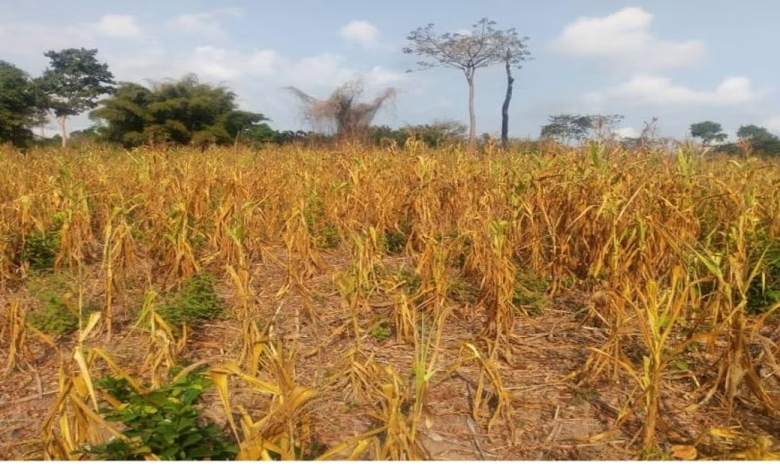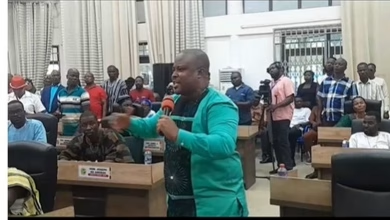World Bank Reaffirms Support for Farmers Amidst Drought Challenges

- The World Bank continues to back farmers in northern Ghana amid severe drought
- Farmers benefiting from World Bank-supported irrigation projects have experienced less drought impact
- FSRP aims to enhance agricultural resilience and food security across West Africa
Robert Taliercio O’Brien, the World Bank Country Director for Ghana, Liberia, and Sierra Leone, has urged farmers affected by this year’s severe drought in northern Ghana to remain steadfast.
During his visit to the Upper East Region to assess the West Africa Food System Resilience Programme (FSRP) projects, he expressed admiration for the resilience of the local farmers.
O’Brien conveyed a strong message of support, stating, “Although this situation is deeply disheartening, I am greatly inspired by the unwavering determination of the farmers I have encountered.
The World Bank stands with you during these challenging times and is dedicated to supporting Ghana and the surrounding region in strengthening value chain systems. Our goal is to ensure that we emerge resilient and fortified through and beyond these natural adversities.”
He noted that communities benefiting from World Bank-supported irrigation projects were less impacted by the drought, thanks to their ability to engage in dry-season farming.
O’Brien and his team inspected the Tono Irrigation Scheme, including the dam wall, reservoir, spillway, and automated intake structure. They also reviewed the solar-powered irrigation systems in Zone B and engaged with farmers across different zones.
The World Bank, in collaboration with the Government of Ghana, has invested significantly in rehabilitating major irrigation systems through the Ghana Commercial Agriculture Project (GCAP). The focus now is on completing work on the Vea and Tono Irrigation Schemes and enhancing their productivity.
Under the FSRP, the World Bank and the Ministry of Food and Agriculture (MOFA) are supporting farmers with input credits and climate-smart agricultural technologies. Additionally, farmers at Tono will receive assistance for cultivating tomatoes using solar-powered pumps.
The FSRP also aims to implement on-farm demonstrations and adaptive trials to evaluate new tomato seeds and support agricultural extension services.
Ms. Ashwini Sebastian, Senior Agric Economist at World Bank Ghana, emphasized that irrigation is just one component of a comprehensive approach to improving food production, which also includes innovative methods and climate-smart practices.
The FSRP is a regional initiative aimed at enhancing food security and agricultural resilience across West Africa, with participating countries including Ghana, Togo, Burkina Faso, Mali, Niger, Chad, Sierra Leone, and Senegal.
In Ghana, the programme focuses on improving the production, marketing, and consumption of key crops such as rice, maize, broiler poultry, soybeans, and tomatoes.






